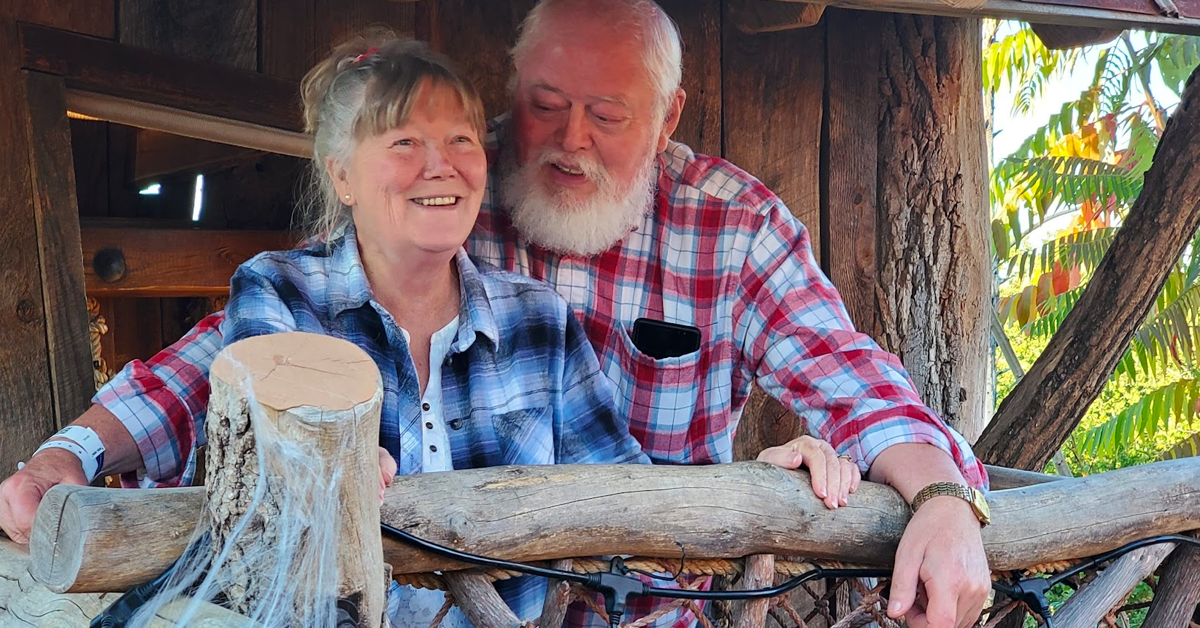Lessons From Papa’s Garden
Lessons From Papa’s Garden
Our children and grandchildren were visiting for the weekend, and they all love mashed potatoes. So I told my husband we needed some more potatoes for dinner.
 He said he would get some. Then, he asked our grandson, Donovan, to come with him as he walked out the door.
He said he would get some. Then, he asked our grandson, Donovan, to come with him as he walked out the door.
Going to the store with their Papa is always fun because they know he will buy them a treat.
So he jumped up and ran to the car while my husband was walking around the back of the house. When he realized he was walking alone, he turned around saw our grandson sitting in the car.
He asked him what he was doing, and our grandson said he was waiting for him to go to the store. My husband laughed and said no, we’re were going to harvest them from the garden.
I watched out the window as he explained how important it was to plant potatoes in the right place.
“You have to make sure that the soil is sandy, loose, and dry, he told him. That’s why I plant mine on a hill.”
Then he showed our grandson how to slide the shovel deep down at the outside edges of the plant. When he lifted the plant, a bunch of beautiful red potatoes came up with it. He was surprised, “Papa, I didn’t know you grew potatoes in your garden!”
Thus began the lessons that our grandchildren learned from their Papa’s garden.
That was 14 years ago, and our garden has given us a chance to connect and have fun with our 10 grandchildren and teach them some fundamental lessons of science, nature, and survival from growing their own food. And so much more.
Our garden gives us exercise, feeds our bodies and soul, and has taught us how to compromise with the critters often visiting our yard.
Our granddaughter, Clare, knows a lot about soil. She helped her Papa in the garden starting at about age six.
He taught her how important the soil was and about the soil PH. It measures the soil’s alkalinity and acidity and is measured on a scale of 1 to 14. The higher the number, the more alkaline the soil. Seven is neutral.
He also explained how the soil pH would help the plant know what nutrients certain plants can take up. All plants have a preferred pH range where they grow best.
The ideal soil pH level for potatoes is somewhat acidic, between 6 and 6.5, but they will tolerate soil with a pH as low as 5.
She is graduating from Virginia Tech this year in Environmental Science with a minor in Crop and Soil Science.
I asked if her major was because she liked to play in the dirt in Papa’s garden.
Her answer was, “I always remember working in the garden with you and Papa. Mom, and I was always so proud of my work.”
She said she loved the soil because it is the foundation for all life, and everything ties back into the soil.
“You can learn so much about the earth just from looking at the soil, she said. Tending to the earth is the noblest thing I can think of, and gardening is one of the ways you can do that. Gardening frees you from stress, from poverty, and essentially from worldly oppression.”
We have a sign in our garden that reads; To Plant A Garden is to Believe in Tomorrow. Teaching our grandchildren today how to navigate their lives positively means we believe in their tomorrows.
For me, nature and gardening are the greatest tonic and therapy a human being can have.
You don’t need a lot of space to grow fresh vegetables, herbs, and fruits. If you have a large container, or a tiny piece of earth, soil, water, and sun, you can create something beautiful, which we all have a great need for, especially now.
The post Lessons From Papa’s Garden appeared first on Morning Coffee Beans.
from Morning Coffee Beans https://ift.tt/TvCMNdF
via IFTTT



Comments
Post a Comment